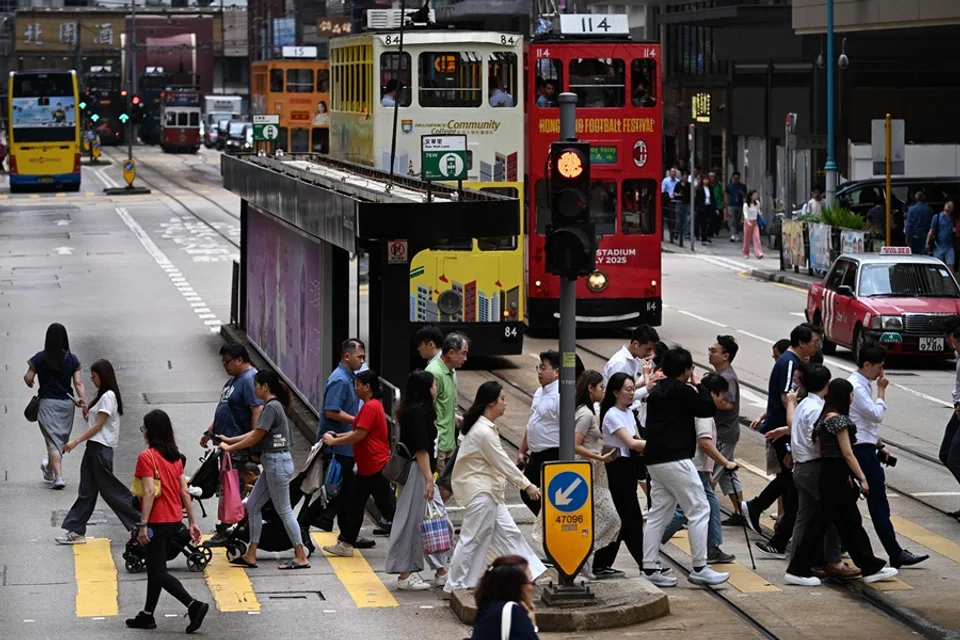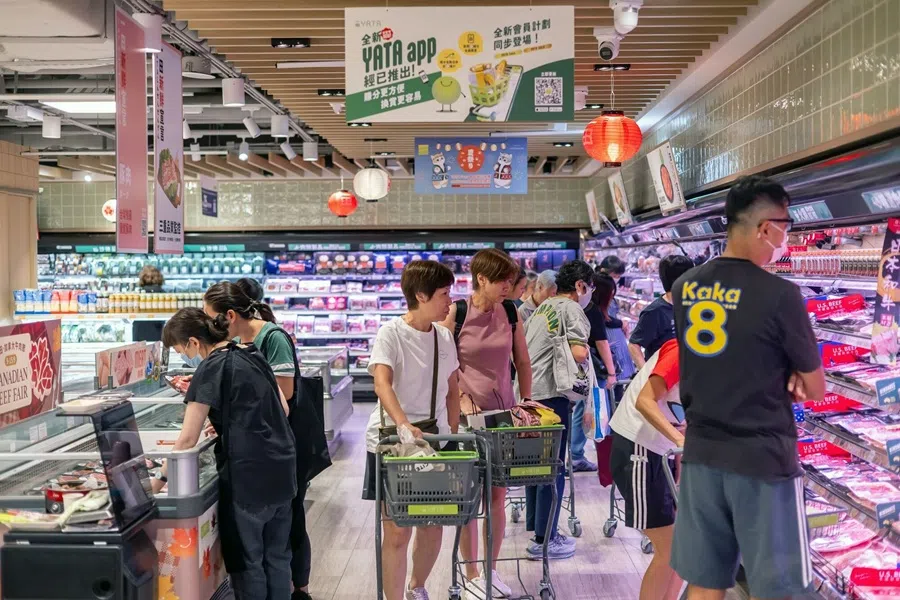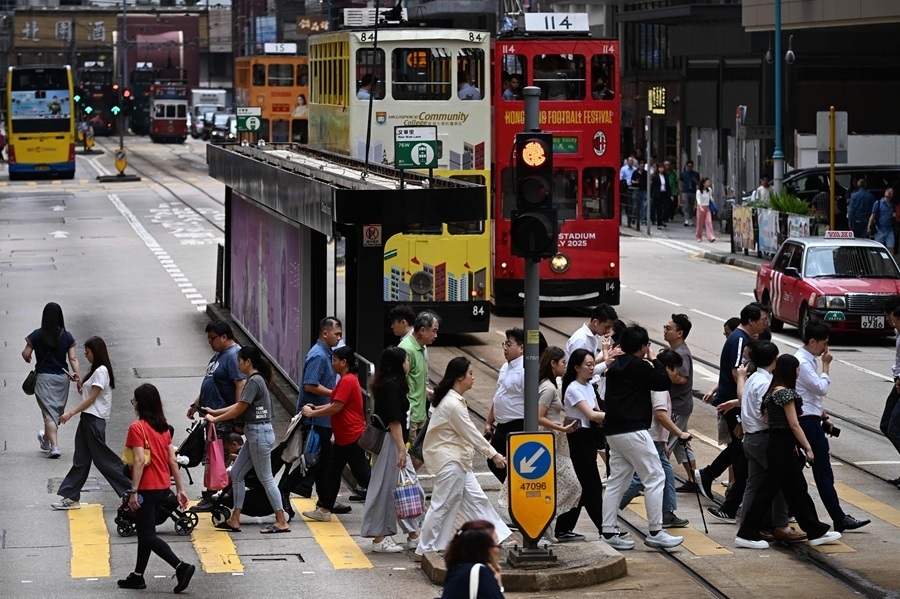Scam meals and broken hearts: The hidden cost of love in Hong Kong
A recent luxury dining scam in Hong Kong — where a man ditched a woman with a hefty bill — highlights a bigger story: a striking gender imbalance that is shaking up relationships and sparking unexpected twists in the city’s social scene. Lianhe Zaobao journalist Tai Hing Shing examines the issue.

“It’s been a long time, shall we meet up for a meal?”
“Sure, how about at the Mandarin Oriental Hotel?”
Hong Kong is a popular tourist destination in Asia, flush with luxury star-rated hotels. Each year, various organisations release rankings of hotels in Asia, and some of Hong Kong’s hotels frequently make the list, such as the Mandarin Oriental in Central, which has recently been a hot topic.
It all started when a man who claimed to be a lawyer in Hong Kong met a female netizen through a social media event a year ago. Both got along well, and they met for dinner at the Mandarin Oriental Hotel. Just as they were about to finish their meal, the man excused himself and never returned, leaving the woman to cover the hefty bill. She had to ask a friend for help to pay, and subsequently filed a police report.
It turned out that the meal cost a whopping HK$80,000 (approximately US$10,272). The two ordered a HK$4,776 set meal for two, but the man also ordered a bottle of top-grade French champagne during the meal, priced at nearly HK$72,000 — the main reason for the exorbitant cost of the dinner.
Not the only case of meal scams
News reports of similar incidents have surfaced in Hong Kong in recent years, where men meet women, only to scam them out of meals and drinks. For instance, in July this year, the police received multiple reports of a man allegedly meeting three women through online social apps, inviting them to dine at restaurants and claiming that he would cover the costs.
In their eagerness to find partners, some women fall victim to scams by those with ulterior motives.

Afterwards, the man would find excuses to get the victims to pay or leave, only to refuse repayment later. The victims eventually lost contact with him and suspected they had been scammed, prompting them to report the incidents to the police.
However, the amounts involved in these scams were relatively small and did not attract much attention. In contrast, the Mandarin Oriental Hotel case involved HK$80,000 — nearly three months’ salary for the average Hong Kong worker — turning this extravagant dining incident into a hot topic among locals, many of whom laughed and joked about visiting the hotel just to see the extravagance for themselves.
This scam has also prompted discussion about online dating in Hong Kong. Some note that the woman in the latest incident is 31 years old, while the male is only 23, which reflects the gender imbalance in Hong Kong, where there are more women than men. In their eagerness to find partners, some women fall victim to scams by those with ulterior motives. Regardless of gender, people should exercise caution when making new friends to avoid being taken advantage of through carelessness.
As of 2024, there are about 4.1 million women in Hong Kong, about 700,000 more than men, meaning 120.3 women for every 100 men.
The larger issue: Gender imbalance
In fact, the Women and Men in Hong Kong — Key Statistics (2025 Edition) published by the Census and Statistics Department of Hong Kong showed that the gender imbalance issue in Hong Kong has been widening in recent years. As of 2024, there are about 4.1 million women in Hong Kong, about 700,000 more than men, meaning 120.3 women for every 100 men.
In the 25 to 64 years old age group, there are 1.26 million unmarried individuals in Hong Kong, including 655,500 women — nearly 50,000 more than men. This imbalance suggests that some marriageable Hong Kong women would have to lower their standards or choose partners with a larger age gap, which has led to an increase in relationships in recent years where the woman is older than the man.

Some single Hong Kong women also chose to marry men from mainland China. In the 1980s, just one in about 20 cross-border marriages involved a Hong Kong woman marrying a mainland man. However, over a decade ago, with the accelerated integration of Hong Kong and mainland China and the increasingly close living and connections in the Greater Bay Area, there was a growing trend of “Hong Kong women marrying north”, becoming a more common social phenomenon.
This number rose further to 19,872 in 2024, with 7,589 Hong Kong brides marrying mainland grooms — marking a record high in recent decades.
During the three years of Covid-19 from 2020 to 2022, the number of cross-border marriages between Hong Kong and mainland China decreased temporarily, with only about 1,000 to 3,000 marriages registered in Hong Kong each year. However, after the pandemic ended in 2023, the numbers rebounded quickly, with 18,939 cross-border marriages that year. This number rose further to 19,872 in 2024, with 7,589 Hong Kong brides marrying mainland grooms — marking a record high in recent decades.
On the other hand, many single Hong Kong women are becoming increasingly cautious about marriage, choosing to focus on their careers. As of the end of last year, there were 1.93 million women in the labour force in Hong Kong, with 1.88 million employed, about 80,000 more than men, leading to a rare instance where the women in the Hong Kong labour market outnumber the men — a true example of “women holding up half the sky”.
Impact in more than one area
What is noteworthy is that many Hong Kong women, with their higher education, often outperform men at work and more are advancing into management positions. For example, in the government sector, as of the end of last year, the number of female senior civil servants increased from 561 to 571, accounting for 42% of the total, while the number of male senior civil servants decreased from 804 to 792, accounting for 58%. It is easy to imagine that as Hong Kong’s population ages and the labour shortage intensifies, women in Hong Kong would play an increasingly important role in the future.
Products and services designed specifically for single individuals are popping up, including single-room karaoke and self-heating meals for one.

The impact of the gender imbalance in Hong Kong has seeped into various fields such as society, economy and culture. As more people choose not to marry and instead embrace the single life, the “singles economy” has rapidly emerged in Hong Kong as a new economic phenomenon. Products and services designed specifically for single individuals are popping up, including single-room karaoke and self-heating meals for one.
Looking ahead, the rise in single individuals in Hong Kong is an inevitable trend that brings both challenges and opportunities. The Hong Kong government might consider drawing on international experiences to develop new economic and consumption models centred around the singles community.
This article was first published in Lianhe Zaobao as “天价饭局的背后”.





